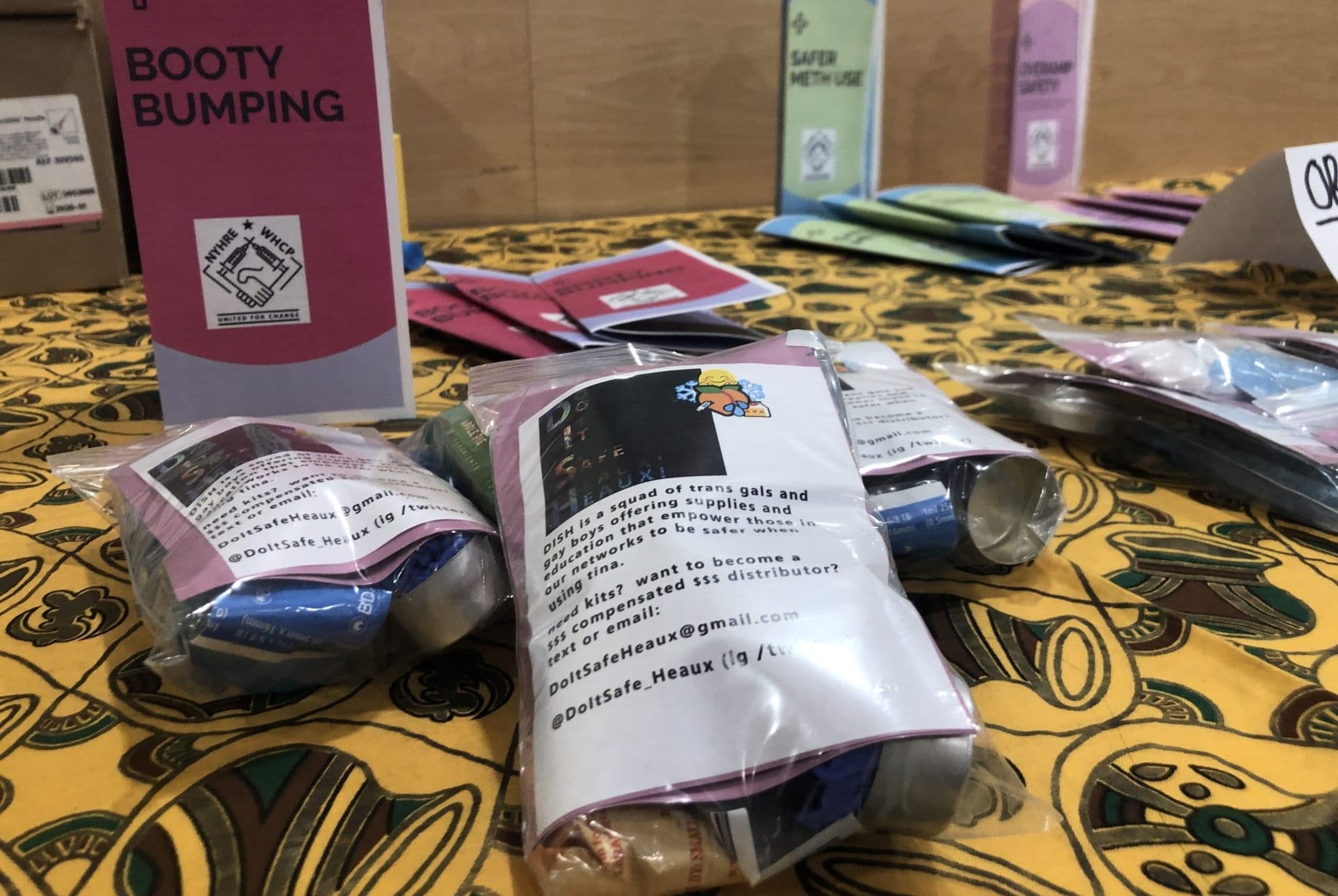Mutual aid has never been in the spotlight in the way it is now. As a result of COVID-19 and the job loss, uncertainty and vulnerability it has precipitated, an increasing number of people have been forced to rely on their communities to provide the resources they need to survive in the face of government indifference. The media has noticed.
But mutual aid is by no means a new concept or practice; it has a robust history as a tool of movements for social change—especially within the LGBTQ+ community.
Dean Spade, a trans activist, writer and academic, defines mutual aid as “a form of political participation in which people take responsibility for caring for one another and changing political conditions not just through symbolic acts or putting pressure on representatives, but by actually building new social relations that are more survivable.”
Activists differentiate mutual aid from charity in that it emphasizes working cooperatively to meet each other’s needs and draws attention to the root causes, rather than the symptoms, of systemic issues.
The transformative potential of mutual aid lies in its premise that care, safety and liberation must be collective struggles.
People in marginalized communities have been engaging in various forms of community care for a very long time. From 1969 onwards, for example, community social programs, including breakfast programs and health clinics, were integral to the work of the Black Panthers. These survival programs became important tools for community education and mobilization, all while fulfilling core community needs. The transformative potential of mutual aid lies in its underlying premise that care, safety and liberation must be collective struggles.
This kind of work is especially important for those whose needs are not met by mainstream organizations or the state. This is very often the case for queer and/or trans people who use drugs, who exist at the intersection of several highly stigmatized identities. Not only are they more likely to have been ostracized by their families (and communities) of origin, but they are also systematically denied government protection, services, care and resources.
In the words of Tim Santamour, an activist we interviewed who organized underground syringe exchanges and other harm reduction efforts among queer people who used drugs during the HIV/AIDS crisis, “We are used to taking care of our communities anyway, regardless of what services may be available to us. We set up those networks… We want services that aren’t going to stigmatize us when we walk in.”
It can be painful when it feels like your whole self is not seen.
He pointed out what should be obvious, but is often missed by single-focus service provision: “You can be both a drug user and queer at the same time, and why do folks not know that those identities can exist, that that intersectionality can happen? And why aren’t they addressing this?”
It can be painful when it feels like your whole self is not seen. And more importantly, when you exist within two or more marginalized communities simultaneously, as a queer and/or trans person who uses drugs does, it is unfortunately all too common to be misunderstood or outright rejected by those who do not also exist in both spaces. That is why queer and trans people who use drugs have often turned to mutual aid as a form of collective survival.
Such efforts, however, tend to be underground; not only because of the associated stigma, but because harm reduction practices (among other survival strategies) are often criminalized. Black, Latinx, and indigenous people who use drugs are especially likely to be punished for not only their drug use, but their survival strategies as well.
Mutual aid often involves risking one’s individual safety in order to achieve communal safety. Tim Santamour and others like him were among the first people to distribute sterile syringes within the queer community, long before it was a funded or even approved practice. In fact, it was likely this history of HIV/AIDS-related syringe access efforts in queer and trans communities that informed and enabled modern-day syringe programs.
Syringe distribution programs and other harm reduction services represent a form of collective care that most usually don’t think of as mutual aid. Bayla Ostrach, applied medical anthropologist and harm reduction researcher in Western North Carolina, pointed out that mutual aid can be an expansive and fluid term. The way that people who use drugs take care of each other through, for example, performing overdose prevention and reversal, can be seen as mutual aid.
Ostrach cited Lesly-Marie Buer, a harm reductionist and medical anthropologist based in Knoxville, Tennessee, who challenges conventional perceptions of people who use drugs by framing overdose prevention within drug-using communities as unpaid public health work.
“Don’t wait for permission to do this stuff. If your community is at risk and you have an understanding of how to fulfill that need, then go ahead and fulfill it.”
Grassroots organizations and collectives like Steady Collective, First Aid Collective Knoxville, and Do It Safe, Heaux! (DISH!) provide mutual aid via free harm reduction training and resources (including access to naloxone, home HIV test kits, fentanyl test strips, emergency contraception, sharps containers, medical disposal bags, and on-the-spot testing for hepatitis C) to queer and trans drug users in Appalachia and the South.
Mutual aid, as a tool for social change, represents not only a practice of community care, but also a conscious effort to create the world that we want to live in, by building long-term, sustainable networks of support. For many, it isn’t just about filling the gaps in state-provided care but actually building something different and better, that centers the needs of the community and the values of self-determination, safety, health, equity and justice.
As Tim Santamour advises: “Don’t wait for permission to do this stuff. If your community is at risk for something and you have an understanding of how to fulfill that need, then go ahead and fulfill it. You don’t get the support. It will come eventually. You just kinda have to keep banging the drum and beating the pavement, and it arrives… It always works out.”
Some mutual aid groups that you can learn more about and donate to:
* First Aid Collective Knoxville
This article is the third in a four-part series to mark Pride Month, exploring the intersections of drug policy and LGBTQ rights and produced in collaboration with the Drug Policy Alliance. (DPA has previously provided a restricted grant to The Influence Foundation, which operates Filter, to support a Drug War Journalism Diversity Fellowship.)
The first article in this series was “How the Drug War Is a Tool to Criminalize LGBTQ+ People.” The second was “Decriminalizing Sex Work and Drugs Central to Trans and LGBTQ+ Rights.”
DISH! safer use kits at a January 2020 kiki, courtesy of DISH!






Show Comments